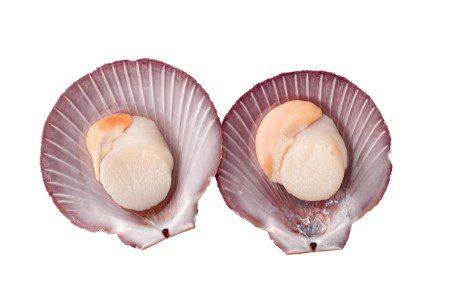

Scallops can be a great addition to a dog’s diet, as they are rich in protein, magnesium, selenium and zinc. However, it is important to make sure they are uncontaminated, as scallops may pick up toxins from microalgae in the water. Scallops should be purchased from clean, cooler waters, and cooked without seasoning for the safety of your pet.
Scallops are great for dogs, as they are a rich source of protein which helps with muscle development and growth. They also contain essential minerals such as magnesium, selenium, and zinc which helps regulate body functions.
Scallops can potentially contain toxins which could cause Paralytic Shellfish poisoning (PSP) in dogs. Furthermore, the shells of scallops pose a choking hazard, and may also trigger allergic reactions if a dog has a food allergy or intolerance.
When feeding dogs scallops, it is important to make sure they are cooked and free from any seasoning. Scallops should be given to dogs occasionally, in small amounts as a treat.
Scallops are a tasty and nutritious food for dogs which can be found in most body of water. It is oftentimes referred to as "sea scallops," "queen scallops," or "giant scallops," and are often found in cold and clean waters, such as the Pacific or Atlantic Ocean. As they are high in protein, magnesium, selenium, and zinc, scallops can contribute to muscle development, healing, and improved body function in your pet. However, there are certain risks associated with eating them, such as the potential of contaminants that can cause Paralytic Shellfish poisoning (PSP) and allergic reactions due to food allergies.
When feeding scallops to your dog, it is important that they are cooked and without any seasoning as these can be harmful. They should also only be fed to dogs occasionally as a treat, and in small amounts. If you are interested in alternative sources of protein for your dog, consider other seafood options such as mackerel, shrimp, or mussels. Egg whites are also a great source of protein for dogs.
What kinds of controls are put in place to help avoid the risks associated with scallops? Toxin control is critical for the safety of the public. This involves testing both the scallops and the ocean waters that the scallops were sourced from. These tests help to verify that the scallops are safe to consume. Allergic reactions to scallops can also be mitigated with proper dog food labels that inform the pet owner of the ingredients present in the scallops.
Do you have experience feeding scallops to your pet? Would you consider giving it to them periodically? Let us know in the comments! Thanks for reading and have a great day with your pup!